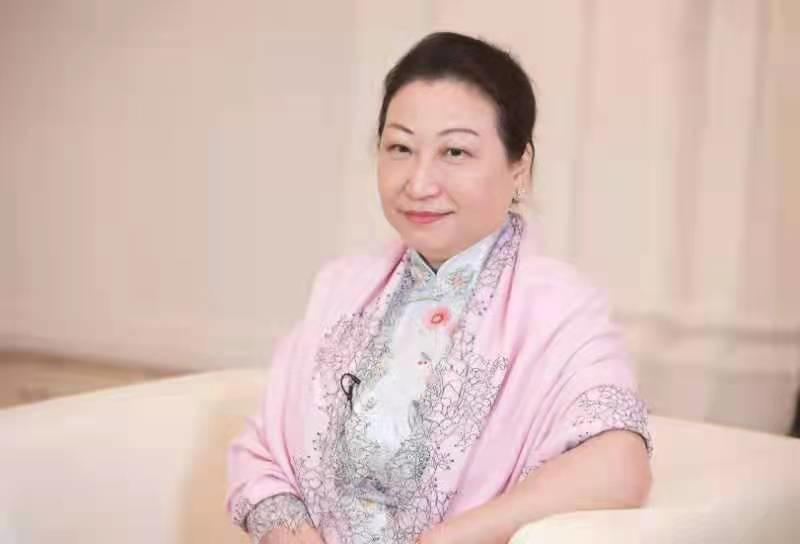Promoting rule of law in HK 'key aim' of Vision 2030
By Kathy Zhang in Hong Kong | chinadaily.com.cn | Updated: 2021-09-13 12:52

The Department of Justice has embarked on projects under Vision 2030 — a 10-year initiative that seeks to promote the proper understanding and recognition of the rule of law in the Hong Kong Special Administrative Region — at the local and international levels, said Secretary for Justice Teresa Cheng Yeuk-wah.
The initiative includes public awareness campaigns, youth engagement, research and professional exchange programs. The government has pledged strong support by allocating HK$450 million (US$57.86 million) for the drive which was launched in November.
In an exclusive interview on Friday, Cheng cited the sharp decline in law-abidingness in Hong Kong in the past few years as a major reason for launching Vision 2030. She said people had been influenced by misleading opinions that they could break the law in expressing their views.
"Vision 2030 is a 10-year initiative and it's not going to turn around the level of misunderstanding about the rule of law in Hong Kong very quickly," Cheng said, but it's imperative to promote a proper understanding of the rule of law.
Emphasizing the rule of law is in line with the United Nations 2030 Agenda for Sustainable Development, which recognizes the rule of law as the pillar for the realization of all the long-term development goals it sets out, she explained.
There has been steady progress in the research concerning the initiative. Cheng said she expected a wealth of objective data to be released in November about Hong Kong's experience and performance in practicing the rule of law in connection with the annual Hong Kong Legal Week, a signature event of the Department of Justice.
To review the performance, Cheng chairs a task force that has renowned legal experts from various countries and regions, including the Netherlands, Japan and the Chinese mainland as members to give advice. She envisioned a scientific and research-based approach by collecting and assessing data and taking into account the social, economic and cultural aspects of the community.
After the data are released, Cheng said more exchanges will follow to share Hong Kong's experience with other jurisdictions. The goal is to make it an inclusive and collaborative exercise so that neighboring jurisdictions can look at how they can utilize Hong Kong's experience and develop sound practices of the rule of law together.
Other notable progress has been made in exchange programs for legal professionals. A ceremony was held for five young Hong Kong legal practitioners on Friday, including those in the civil service and private practice, who will take up positions in leading international organizations, including the Hague Conference on Private International Law, and the United Nations Commission on International Trade Law Regional Centre for Asia and the Pacific.
Their secondments were at the recommendation of the central government and in line with the Department of Justice's efforts to reach such agreements with international organizations. Cheng said young people will gain experience and benefit from the opportunities.
With the electoral system an essential component of the political structure and an important part of the rule of law practices in the SAR, Cheng said she's optimistic about the Election Committee subsector elections to be held on Sept 19.
"It'll be a very important and positive turn for Hong Kong," she said of the improved electoral system for electing members of the Election Committee and members of the Legislative Council, as well as the chief executive.
The changes will bring broader representation, electing not just people who are familiar with Hong Kong's local affairs, but also those who're knowledgeable about the mainland and international developments, she said.
Cheng expects to see people who're patriotic and committed to serving Hong Kong to be elected. They'll be looking after the interests of Hong Kong without losing sight of the city's role in the country's overall development, and help the city move forward.
New chances
There'll be plenty of scope for Hong Kong to explore the new opportunities arising from the central government's policy support. A prime example is the plan announced recently by the central government to develop the Qianhai Shenzhen-Hong Kong Modern Service Industry Cooperation Zone.
Cheng said there will be immense opportunities for Hong Kong under the Qianhai plan, which will see the zone expand from the current 14.92 square kilometers to 120.56 sq km.
She also expressed enthusiasm for the opportunities to be offered for the legal sector in Qianhai. Currently, 11,500 registered Hong Kong enterprises are located in Qianhai, and the number is expected to grow. Shenzhen Mayor Qin Weizhong said on Thursday the city will allocate one-third of the land in the expanded cooperation zone for Hong Kong-invested enterprises.
Cheng, who's also an arbitrator, believes it will lure more Hong Kong enterprises to Qianhai. The growing number of Hong Kong-invested enterprises means more opportunities for Hong Kong practitioners in arbitration and mediation in which the SAR excels.
The Department of Justice will also try to improve the mechanism for wholly-owned Hong Kong enterprises in Qianhai to adopt Hong Kong laws, and choose for arbitration to be seated in the SAR, Cheng said.
Other promising areas include facilitating more Hong Kong law firms to set up partnership associations to provide a one-stop shop for legal services on the mainland. Along with the Guangdong-Hong Kong-Macao Greater Bay Area's legal professional examination, more lawyers familiar with the laws of both Hong Kong and the mainland will be available for the Qianhai Cooperation Zone to serve the business community there.
Cheng hopes that through the Qianhai program, a "more unified and broader system" could be developed so that Hong Kong legal practitioners can work together with their mainland counterparts in the Greater Bay Area.
























